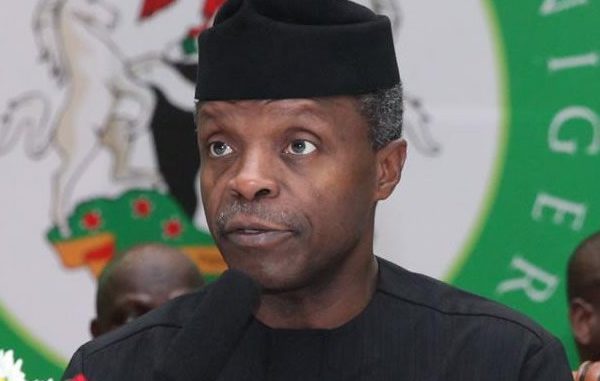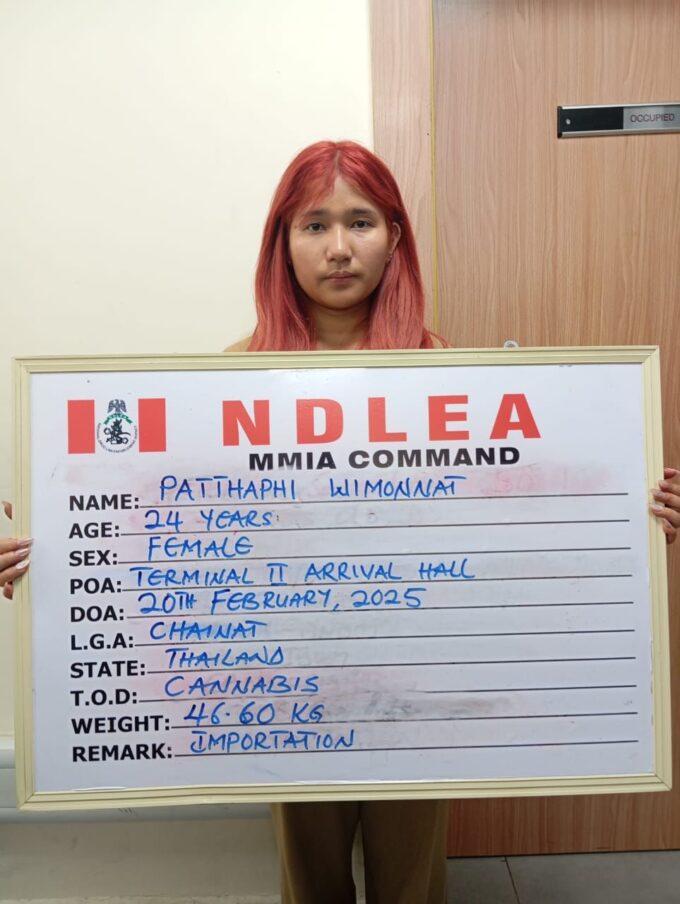Yemi Osinbajo
**We must keep in mind, that oil and gas are only guaranteed as today’s resources, and not necessarily tomorrow’s. We cannot bet on the fact that even a few decades from now, these natural resources will be as central to the global economy as they are today.
ADDRESS BY HIS EXCELLENCY, PROF. YEMI OSINBAJO, SAN, VICE-PRESIDENT, FEDERAL REPUBLIC OF NIGERIA, AT THE OPENING CEREMONY OF THE EXTRAORDINARY SESSION OF THE COUNCIL OF MINISTERS OF AFRICAN PETROLEUM PRODUCERS’ ORGANISATION (APPO), ON MONDAY, 11TH JUNE, 2018.
Protocol.
I am pleased to be with you this morning, for the opening ceremony of the Extraordinary Session of Council of Ministers of the African Petroleum Producers’ Organization.
I must say, that I am becoming an honorary member of this elite club, as this is my third attendance at your meetings. Asides from the pleasure of meeting you again, I think my third coming entitles me to ask you with a Nigerian slang, how far? It is heart-warming to note that since that last meeting, a lot of progress have been made.
I recall that at that meeting, Ministers resolved to work to revitalize the Organization, and to reposition it to meet present and emerging challenges of the global oil and gas industry, and to compete effectively with other international and regional energy organizations, like OPEC, GECF, and others.
This resolution followed the unanimous agreement that 30 years after its founding, APPA had not sufficiently lived up to the expectations of its founding fathers. As the birth place of what we now know as APPO, Nigeria has been especially concerned about this. Africa needs a united front in global energy discourse, and we are convinced that there is no better institution to convene those conversations than APPO itself.
Your Excellencies, it is immensely gratifying, that the decision to reassess the effectiveness of the organization and thereafter embark on significant reforms, came from within the organization. I want to commend the Council of Ministers of APPO, for the bold decision to confront the fundamental challenges facing the Organisation.
Since the July 2017 meeting in Abuja, I am told that two other ministerial meetings have been held in Luanda, Angola and Ndjamena, Chad, to advance the journey of reform.
Let me on behalf of President Muhammadu Buhari and the government and people of Nigeria, thank you, the Council of Ministers, for the confidence reposed in Nigeria, manifesting in your unanimous agreement to place the responsibility for leading the reform process on Nigeria’s Minister of State for Petroleum Resources, Dr. Emmanuel Ibe Kachikwu.
Permit me the modesty of saying that Minister Kachikwu, President of APPO, has remained since March 2016, very much at the centre of the reform effort in the Nigerian oil and gas industry. He is very well placed to creditably deliver this particular reform effort, given that it is very similar to what he has championed here on the domestic oil and gas front, as Minister in the last two and half years.
Under his watch, the Ministry of Petroleum Resources has developed and carefully implemented a comprehensive blueprint for reform, known as the Seven Big Wins, focusing on seven key reform areas. The results produced so far, have all been central to what is described as the Change Agenda of our Administration in the oil and gas sector.
The long overdue legislation that will provide a modern, transparent and efficient framework for the governance of the Nigerian oil and gas industry – the Petroleum Industry & Governance Bill, first introduced more than a decade ago, is now in the final stages of becoming law. Other pieces of legislation touching on Regulation, Fiscal Issues and Community Issues, are in the process of being developed.
Furthermore, for the first time in decades, modern policies for the governance of Nigeria’s oil and gas sectors, have been discussed and approved by the Federal Executive Council. These include the National Petroleum Policy and the National Gas Policy, both of which set clear directions, on the role of government in the industry, outline a roadmap for the governance of the sector and for its operations, and highlight the investment opportunities available for investors, both from within and outside Nigeria.
Your Excellencies, given the progress achieved so far in the Nigerian oil and gas sector, I can therefore confidently assure you, that Nigeria and Dr. Kachikwu and his team, will exceed our expectations regarding the APPO reform programme.
I want to assure you that Nigeria will give you all the support you need to realize your vision of making APPO the ‘world’s major institution of reference on Africa’s hydro-carbon matters’, and indeed, the pride of Africa.
Today’s meeting is yet another crucial chapter, in the revitalization and reform of APPO. As you proceed into your discussions and deliberations, I want you to consider all the pertinent issues with an open and contemplative mind, and to put the collective interest ahead of all other interests.
I am confident, that a revitalized APPO will contribute tremendously, to the development of the African oil and gas industry, particularly now, that Africa is becoming a major global player in the sector.
The oil and gas industry is a very capital intensive one. As individual countries, we often do not have the resources required to make the necessary investments to grow the industry. This is especially so because these investments are competing with infrastructure and social services, for the limited resources available to us as governments.
By serving as a platform for increased collaboration and cooperation among member countries, APPO will go a long way towards helping overcome these financial challenges. Increased synergy will no doubt help mobilize the investments needed, to deliver the major infrastructure required by the industry, like trans-border gas and oil pipelines, joint refineries, gas plants, and so on. Nigeria, as most of you know, is already leading in some senses, by example, with our work on the West Africa Gas Pipeline Project, and the Nigeria-Niger collaboration on refining.
In the increasingly interdependent world in which we live, greater levels of regional economic integration will be required, allowing the free flow of the dividends of research and technology. APPO also needs to seriously look beyond public sector or government ownership of its activities, and tap into private sector competencies, and models to a greater degree.
I would also like to speak briefly about APPO Fund for Technical Cooperation, which I’m told is also undergoing recapitalization, to enable it better fulfil the role for which it was established.
The financial model of the fund, for example, may need some re-tweaking. It could be re-modelled after similar institutions that have succeeded, like the OPEC Fund, where of course as you know, non-OPEC members can begin to invest. It is also time for us to open up APPO fund, such that non-APPO countries and private institutions, should be able invest.
In addition, the APPO fund ought to operate as an autonomous entity, independent perhaps of the APPO Secretariat, in the same way that the OPEC fund operates independent of OPEC.
If institutions similar to APPO and APPO Fund have succeeded and are continuing to succeed in other parts of the world, then we have no reason, and no excuse, to fail as a continent.
Your Excellencies, it is important to acknowledge, that the relationship of our various countries with oil and gas, is an interesting and somewhat complicated mode. It is for many of us, the mainstay of our economies, delivering much needed government revenues and foreign exchange to our economies. But at the same time, there is the challenge of overdependence, evident from the troubles we all went through when the price of crude oil fell dramatically in the period 2014–2015.
The lesson here is that, while oil and gas will continue to be critical to our revenue bases and our national economies, we must also redouble our efforts to achieve the following; one, diversify our economies away from the dangerous overdependence. Two, ensure that we invest as much as is possible of today’s current oil and gas revenues, in the infrastructure and human capital that will underpin future economic growth and development.
We must keep in mind, that oil and gas are only guaranteed as today’s resources, and not necessarily tomorrow’s. We cannot bet on the fact that even a few decades from now, these natural resources will be as central to the global economy as they are today.
All serious economies around the world have realized this, and are making determined plans for a world beyond oil, or as they say, a zero-oil world. As African countries, we cannot afford to act differently.
Your Excellences, ladies and gentlemen, I have no doubt, that this Extraordinary Session of the Council of Ministers of African Petroleum Producers Organization (APPO), will facilitate increased cooperation among member Countries, for the development and implementation of robust policies, and solutions focused on maximizing the value in, and benefits of our oil and gas resources.
So while wishing you productive deliberations, it is now my honour and pleasure, to declare open, this Extraordinary Session of the Council of Ministers of African Petroleum Producers Organization (APPO).
I thank you for listening.
Released by:
Laolu Akande
Senior Special Assistant on Media and Publicity to the President,
Office of the Vice President,
June 11, 2018













